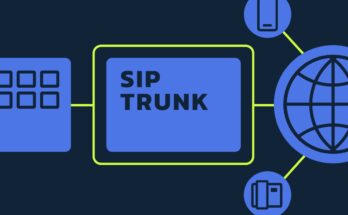The fintech industry, in an increasingly competitive ecosystem, depends on how effectively the latest technologies get implemented. Custom fintech software development involves the creation of different types of applications for different sub-sectors.
From advanced enterprise-level platforms to simple mobile payment apps, there are different types of fintech software. New technologies, such as blockchain, AI, and others, are being increasingly used to enhance such applications’ functionalities, performance, and reach.
Explore the different types of fintech applications and their benefits.
i. Accounting Information Systems
Accounting information systems are designed for gathering, storing, and processing accounting information. The software keeps track of not just the accounting activities but also the resources available. The development process can include the integration of accounting information systems, ERP applications, and business intelligence as well.
ii. Loan Lending Software
Such software gathers and analyzes data on customers to provide insights into their creditworthiness to financial institutions. These applications cannot just be designed to assist the lenders, but also the individual users and service providers. Lenders and service providers can use money lending applications to facilitate faster loan approval processing, reduced risk, and increased efficiency.
Loan origination applications are used by financial institutions and help bring operational efficiency. These systems are designed to provide excellent sure experience and simpler interactions between lenders, partners, and borrowers. They manage loan requests in an efficient and quick manner using different channels.
iii. Blockchain-Based Apps
Blockchain development involves the design and development of agile blockchain-based fintech applications. The process involves carrying out distributed ledger technology (DLT) transactions in a network in a secure way. DLT keeps track of physical and nonphysical assets. Such fintech systems offer greater transparency and enhanced security.
iv. Insurance Applications
There are different types of insurance and insurance apps make the process easier for users and insurance companies. CRM software is used for handling insurance technology. From creating digital copies of insurance policies to tracking commissions, these systems offer many functions.
v. Insurance-Based Software
Insurance-based fintech applications can be quite complex as they are required to handle basic administration, maintain customer documentation, automate agency operations, and handle claims management, billing, and more.
There are different types of insurance-based fintech apps such as:
· Internal Insurance Agency Apps: Agencies can use such applications to store and process customer data. Such systems can generate documents, assign jobs, track progress, and build client connections.
· Client Management: Such systems are developed to provide customized insurance solutions. An example of such software is where users can scan their property for potential problems, such as pipe leaks or breaks, from their phones.
vi. Intelligent CRM Software
Intelligent CRM applications allow keeping track of all exchanges with existing clients and potential customers. Cloud-based CRM solutions can be integrated with advanced technologies including:
· AI
· Microservices
· Voice technology
Such systems help improve overall financial management.
vii. Banking Apps
Bank applications are simply the most commonly used type of fintech software. Such applications provide quick and convenient access to banking services.
Some of the common functions carried out by these apps include:
· Completing transactions
· Bill payments
· Carrying out inter-account transfers
· Obtaining financial advice
viii. Digital Wallet
In the world of fintech, a digital wallet refers to an app or online solution that enables individual users or businesses to carry out secure online transactions. Fintech software development involves creating digital wallet apps that allow financial institutions to complete customer requirements.
ix. Regtech Applications
Regtech stands for regulatory technology and makes use of technologies such as machine learning (ML) and big data analytics. As the name suggests, the emphasis is on managing and monitoring the way companies comply with industry-specific standards and regulations.
Regtech enables the creation of regulatory applications that help eliminate or reduce risks while enabling secure, faster, and simpler transactions between businesses. There are financial risk management applications that help mitigate risks.
x. Investment Management Software
Investment management applications allow users to keep track of and optimize investments. Such software applications allow users to monitor even the smallest details. Some of the key functionalities of such applications are as follows:
· Order management allows trade order placement, execution, allocation, and processing
· View account activity history
· Access to portfolio accounting to provide information on various financial indicators
· Reporting to assess the performance
So, these are some of the different types of custom fintech software applications. If you seek high-quality fintech application development services, ROONYX is your one-stop platform.



